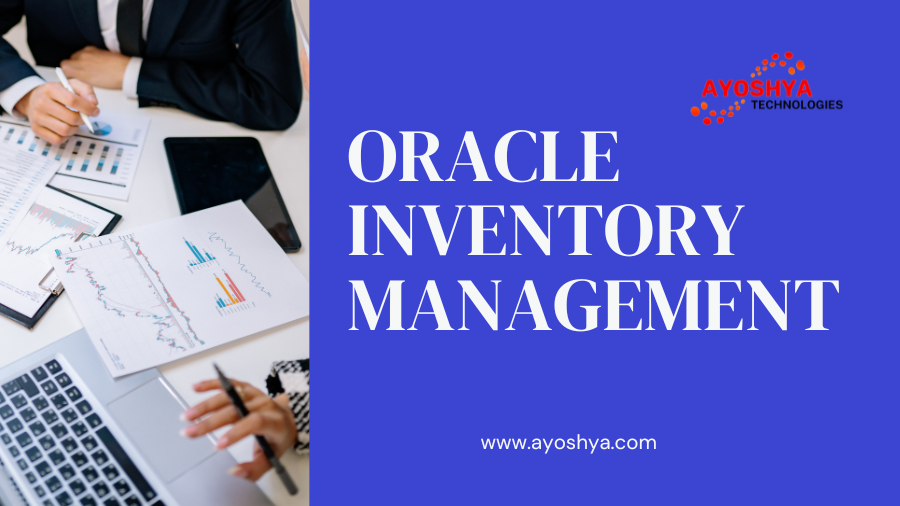Mastering Efficiency with Oracle Inventory Management
In the intricate dance of business operations, inventory management takes center stage. Oracle Inventory Management emerges as a choreographer, orchestrating seamless and efficient inventory processes. This article unravels the complexities, explores success stories, and envisions the future of inventory management with Oracle.
Evolution of Inventory Management
The history of inventory management mirrors the evolution of business operations. From pen-and-paper methods to sophisticated digital solutions, the journey has been one of continuous improvement. Oracle Inventory Management embodies this evolution, providing businesses with a comprehensive solution to navigate the challenges of modern inventory management.
Oracle Inventory Management Overview
At the heart of Oracle’s capabilities lies its inventory management solution. This section provides an in-depth look at the key modules and functionalities that make Oracle a leading choice for businesses seeking efficiency and accuracy in managing their inventory.
Streamlining Operations with Oracle
Efficiency is the cornerstone of successful business operations. Oracle Inventory Management plays a crucial role in streamlining operations by providing tools that enhance inventory tracking, order fulfillment, and overall operational efficiency.
Real-time Inventory Visibility
In the fast-paced business landscape, real-time visibility into inventory is not a luxury; it’s a necessity. Oracle ensures that businesses have accurate and up-to-date information about their inventory, facilitating informed decision-making and preventing disruptions.
Integration with Supply Chain
An integrated supply chain is a key component of successful inventory management. Oracle acts as a bridge, improving coordination between inventory and supply chain processes, ensuring a seamless flow of goods from production to delivery.
Demand Forecasting and Oracle
Anticipating demand is a critical aspect of effective inventory management. Oracle’s capabilities in demand forecasting empower businesses to predict market trends, optimize stock levels, and align their inventory with actual customer demand.
Cost Management Strategies
Cost management is a perpetual concern for businesses. Oracle approaches cost management in inventory through efficient practices, helping businesses reduce costs while maintaining the desired level of inventory.
Scalability and Oracle
As businesses grow, so do their inventory needs. Oracle provides scalable solutions that can adapt to the changing demands of growing enterprises, ensuring that management remains efficient and effective.
Security Measures in Inventory Management
Protecting sensitive inventory data is paramount. Oracle prioritizes data security in its inventory management tools, implementing measures to safeguard against data breaches and unauthorized access.
User-Friendly Interface
An intuitive and user-friendly interface is crucial for effective inventory management. Oracle ensures that its inventory management tools are accessible to both inventory managers and end-users, enhancing overall usability.
Success Stories: Businesses Thriving with Oracle
The true testament to Oracle’s impact lies in the success stories of businesses that have embraced its Inventory Management solution. From improved efficiency to enhanced customer satisfaction, these stories showcase the tangible benefits of Oracle in real-world scenarios.
Common Challenges and Oracle Solutions
No system is without challenges. This section identifies common challenges in inventory management and outlines Oracle’s proactive solutions to address these issues, ensuring a smooth and efficient inventory management experience.
Future Trends in Inventory Management
As technology continues to advance, so does the landscape of inventory management. This section explores emerging trends in inventory management technology, offering insights into how Oracle envisions the future of inventory management solutions.
User Testimonials
The voices of businesses using Oracle Inventory Management provide a human perspective on its transformative power. Personal accounts and testimonials highlight the positive experiences and outcomes achieved through Inventory Management.
FAQs: Addressing Common Queries
- Q: How does Oracle ensure the accuracy of real-time inventory information?
- A: Oracle employs advanced tracking mechanisms and data synchronization protocols to ensure the accuracy of real-time inventory information.
- Q: Can Inventory Management be integrated with other enterprise systems?
- A: Absolutely. Oracle’s inventory management solution is designed for seamless integration with other enterprise systems, enhancing overall business efficiency.
- Q: What measures does Oracle take to protect sensitive inventory data?
- A: Oracle implements robust security measures, including encryption and access controls, to protect sensitive inventory data from unauthorized access.
- Q: How does Oracle assist businesses in adapting to changing inventory needs?
- A: Oracle provides scalable solutions, allowing businesses to adapt their inventory management practices to meet changing demands and business growth.
- Q: What level of technical expertise is required to use Inventory Management?
- A: Inventory Management is designed with user-friendliness in mind, requiring minimal technical expertise for both inventory managers and end-users.
Conclusion
In conclusion, Oracle Inventory Management emerges as a maestro, conducting the symphony of efficient inventory management. From real-time visibility to scalable solutions, Oracle empowers businesses to master their inventory processes. Success stories, proactive solutions, and a glimpse into the future underscore Oracle’s pivotal role in shaping the present and future of inventory management.
You may be interested in:
Oracle Consulting: the Power of Digital Transformation
How SAP Supports Supply Chain Management and Logistics



